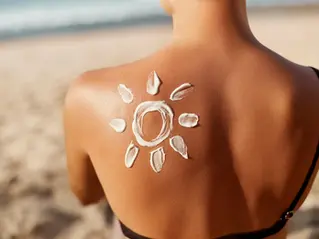Dealing with Acne, Hair Growth, and Hair Loss from PCOS
- Love To Feel Editorial Team
- Jul 3, 2025
- 3 min read
Polycystic Ovary Syndrome (PCOS) is a hormonal condition that affects far more than just the menstrual cycle. For many, the outward symptoms, acne, unwanted hair growth, or hair thinning, are some of the most distressing parts of living with PCOS.
These changes are caused by a group of hormones known as androgens. While all people produce androgens, individuals with PCOS often have higher levels or increased sensitivity to them. The result? Hormonal skin issues and hair changes that can feel difficult to manage, both physically and emotionally.
Let’s break down why this happens, and what can help.
What Causes These Symptoms in PCOS?
Androgens: The Hormones Behind the Changes
People with PCOS often have elevated levels of testosterone and DHEA-S, two types of androgens. These hormones play a role in skin and hair behaviour.
Acne: Excess androgens increase oil (sebum) production in the skin. When oil combines with dead skin cells, it can clog pores, leading to hormonal acne — often deep, sore spots around the jawline, chin, or back.
Hair Growth (Hirsutism): Higher androgen levels can trigger excess hair growth on the face (upper lip, chin, sideburns), chest, stomach, or back. This is known as hirsutism and affects up to 70% of people with PCOS.
Hair Thinning (Androgenic Alopecia): While androgens can trigger excess body hair, they can also cause scalp hair to thin, especially around the crown or temples. This is due to miniaturisation of hair follicles.
Read More: How PCOS Is Diagnosed
Managing Acne and Hair Symptoms
1. Hormonal Treatments
If androgens are driving the symptoms, hormonal treatment can help reduce their effects.
Combined oral contraceptive pill: Often used to lower androgen levels and regulate periods. It may take 3–6 months to show improvement.
Anti-androgens (like spironolactone or cyproterone acetate): Block androgen receptors, reducing acne and hair growth. Usually prescribed alongside contraception.
Hormonal IUDs won’t help with acne or hirsutism but can help with bleeding symptoms.
These medications are not suitable for everyone, so speak with your GP about risks and benefits.
2. Topical Skincare for Acne
Products containing benzoyl peroxide, salicylic acid, or azelaic acid can reduce inflammation and breakouts.
Retinoids (like adapalene or tretinoin) help unclog pores and support skin turnover. Prescription versions are stronger and often more effective.
Avoid overly harsh scrubs or stripping cleansers, they can worsen irritation.
A dermatologist can help build a tailored plan if over-the-counter options aren’t working.
3. Hair Removal and Reduction Options
Shaving, waxing, threading, or depilatory creams: Short-term but accessible solutions.
Electrolysis: Permanently destroys hair follicles, but can be time-intensive.
Laser hair removal: Effective for reducing growth in treated areas, particularly on lighter skin tones with dark hair. Not usually NHS-covered but sometimes supported for severe cases.
Consistency is key, results take time, and regrowth can happen if hormone levels remain high.
4. Managing Hair Thinning
Minoxidil (Regaine): A topical solution that may slow hair loss and encourage regrowth. It must be used continuously to maintain results.
Volumising shampoos and root concealers: Can help with appearance, though they don’t treat the cause.
Speak to a healthcare provider before starting supplements, some, like biotin, lack evidence for PCOS-specific hair loss.
Further Reading: PCOS and Periods: What’s Different and What to Know
The Mental Health Impact
Living with visible symptoms can have a real emotional toll. Many people with PCOS report feeling:
Self-conscious or embarrassed
Frustrated with their appearance
Tired of constantly managing symptoms
Dismissed by professionals who downplay concerns
It’s more than “just hair” or “just a few spots.” These changes affect self-image, confidence, and mental wellbeing. If these feelings start to impact daily life or relationships, consider:
Talking therapy or counselling: Can help process body image issues, anxiety, or health stress.
Support groups (online or local): Hearing from others with PCOS can be reassuring and validating.
Mental health support through your GP: Especially if low mood, panic, or disordered eating is involved.
You deserve to feel heard, and supported, in how this condition affects your life.
In Summary
PCOS symptoms like acne, excess hair growth, and hair thinning are common, but that doesn’t mean they’re easy to live with. These changes are rooted in hormonal imbalance, especially higher androgen levels, and they often require a multi-step, long-term approach to manage.
There’s no quick fix, but there are options that can help. Whether through medical treatments, skincare, cosmetic solutions, or emotional support, you don’t have to tackle these challenges alone.
You Might Also Like: How to Work on Your Confidence Without Obsessing Over Your Body









Comments